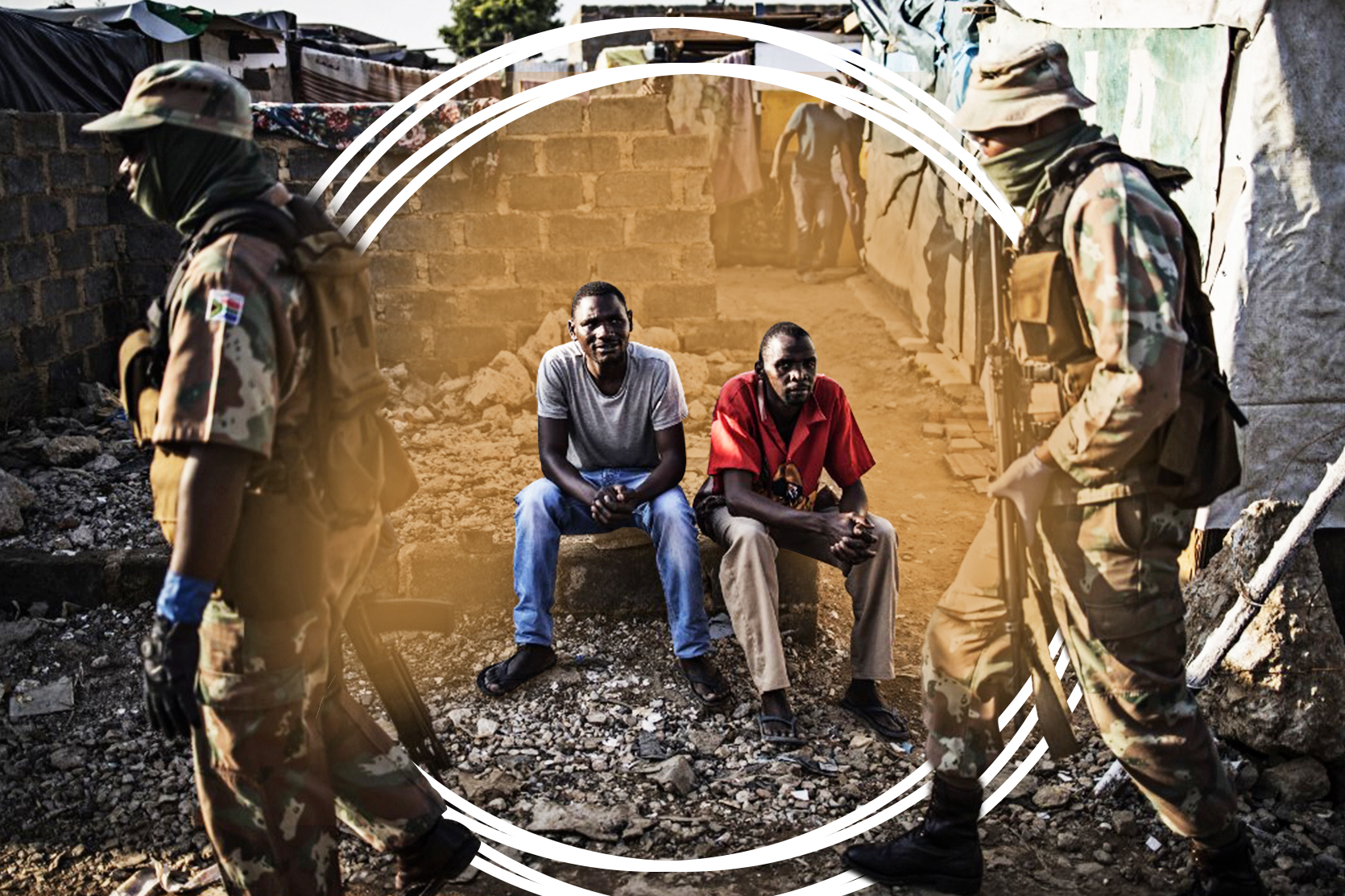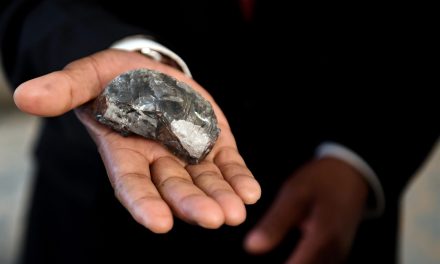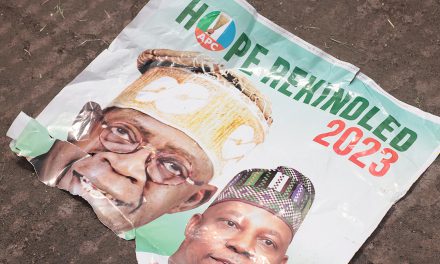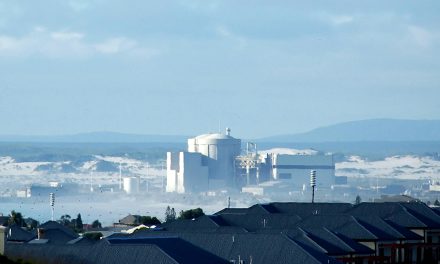In 1909, at the apex of the British Empire, Westminster passed an Act of Parliament which banded together four colonies on the southern tip of Africa, creating the Union of South Africa. Although the effects of the South Africa Act still permeate, it held little meaning at the time for millions of black inhabitants who remained oppressed.
For them, the Freedom Charter with its proclamation of a South Africa “belonging to all who live in it” would prove a far more resonant founding document. In 1994, nearly 39 years after the Congress of the People forged the Freedom Charter, another crowd gathered to witness the inauguration of a new President and the ushering in of a new era.
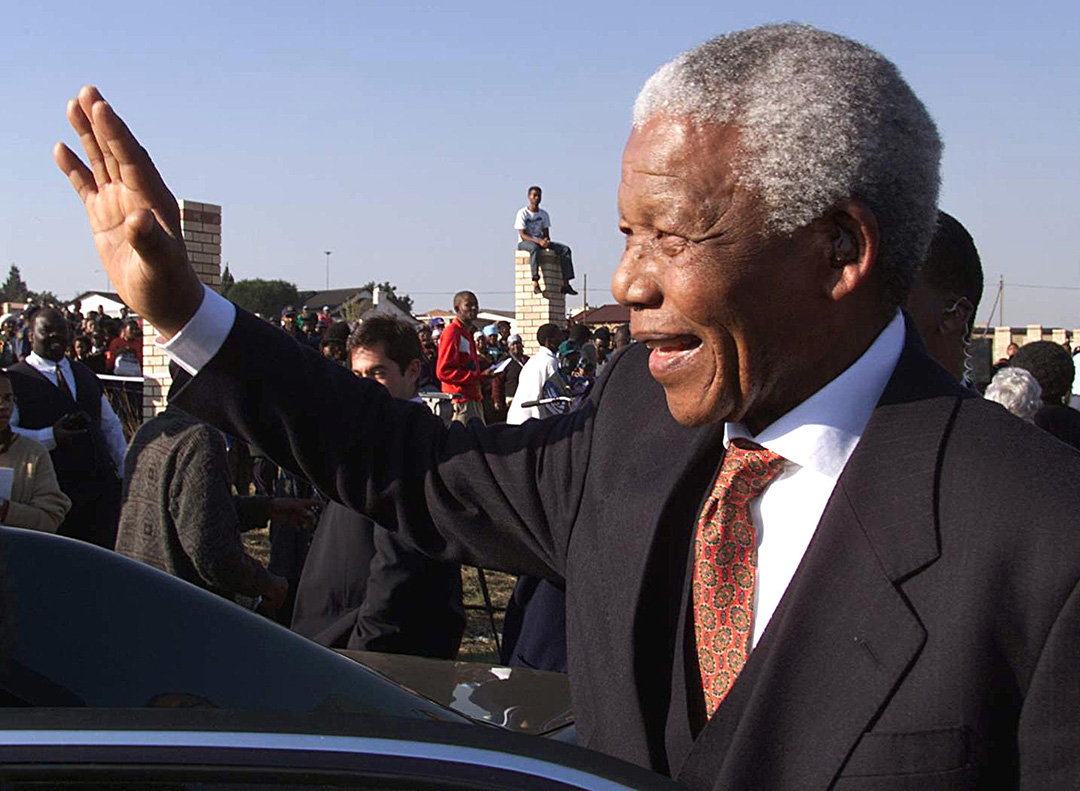
Outgoing South African president Nelson Mandela waves to supporters at the Shanty clinic in Orlando, West Soweto 11 June 1999. Photo by YOAV LEMMER/AFP
The pledge
Addressing a nation scarred by colonialism and Apartheid, Nelson Rolihlahla Mandela pledged: “We understand it still that there is no easy road to freedom. We know well that none of us acting alone can achieve success. We must therefore act together as a united people, for national reconciliation, for nation building, for the birth of a new world.”
This month we commemorate 105 years since Mandela first blinked into the world. Later this year we will observe ten years since he drew his last breath. We are also a just year away from what will likely be the most competitive election in South Africa’s history, an event which also marks thirty years of democracy.
Therefore, this is a fitting moment to consider, in historical terms, whether Mandela’s presidency fulfilled his inaugural pledge for reconciliation and for nation-building.
Protecting gains
We sometimes forget how Mandela pursued reconciliation because of both his realism and his idealism. In Mandela’s posthumously released presidential memoir Dare Not Linger, his successor, Thabo Mbeki, described how Mandela delegated various governing responsibilities, but that he always retained strong oversight on issues of domestic security.
This was directly tied to reconciliation because as Mbeki noted: “The reconciliation business had to do with Madiba’s wish to say, ‘Let’s protect the democratic gains from this potential threat’ and therefore this became a preoccupation not so much because he was a worshipper of reconciliation in itself but it served a purpose in terms of protecting what we had gained”.
There were two groups which most concerned Mandela. Foremost was the threat posed by the reactionaries within the Apartheid system. As Mandela recounted in Dare Not Linger, and earlier in Long Walk to Freedom, this group had opposed the negotiation process from the start and had sought to undermine it at every turn. Many held positions within key security organs, and they had allies within the National Party.
To shatter this axis, Mandela needed to reach out to the millions of white South Africans, particularly Afrikaners, who had been loyal NP voters for decades. The various symbolic gestures he made as President, whether through the national anthem or at the 1995 Rugby World Cup served this purpose.
Consider the fate of many of the political cornerstones of Apartheid’s racist system. The NP itself ceased to meaningfully exist during Mandela’s presidency, and the Conservative Party soon followed. Few South Africans still live in fear of the terror group, AWB. Our politics is better today because Mandela’s strategy condemned these groups to irrelevance and extinction.
The second group which concerned Mandela was the regionalist Inkatha Freedom Party. They had been a key participant in the violence which affected KwaZulu-Natal during our democratic transition. The IFP had also questioned the legitimacy of our first democratic election until the very last minute. However, in the 1994 elections, the IFP met the threshold for representation in our first democratic cabinet.
Faced with this scenario, Mandela’s management of the IFP, especially of party leader Mangosuthu Buthelezi was astute. Even if the IFP desired special, or separate status for much of KwaZulu-Natal, their ambitions were thwarted while they were represented in a national democratic government, particularly since Buthelezi retained his cabinet position beyond Mandela’s presidency.
The IFP of today acts more or less as most of our political parties do. It lobbies for political favours and tries to score points in parliament. It is also generally committed to our post-1994 settlement. Although unlikely to bear out, the recent suggestion that party leader Velenkosini Hlabisa could serve as a compromise presidential candidate in the event of a hung parliament next year is the latest example.
What is also clear is that Mandela’s priorities, especially reconciliation, are a crucial reason why our democratic gains remain protected from the risks he detected at its birth.
Forging a new society
Even as Mandela used reconciliation to ensure democratic stability, it was also central to his vision of a society capable of addressing the inequalities colonialism and Apartheid left us.
Naturally, when we recall his famous “speech from the dock” delivered on 20 April 1964, we remember its climax when Mandela declared his willingness to die for a democratic South Africa. Less remembered is how, as the world followed, Mandela’s speech provided a visceral, detailed, accounting of the way Apartheid was devaluing black South Africans in education, income and healthcare.
Mandela delivered that statement almost exactly thirty years before he became our first democratic president, when his pragmatism would thread the needle between reconciliation and redress.
Reconciliation was the tool he used to get South Africans across racial groups to approve a system of taxation and government spending which could uplift black South Africans. White South Africans participated in a progressive taxation system because they felt that they had a place in a democratic South Africa.
Admittedly, many of the inequalities Mandela spoke of in 1964 and 1994 still exist. Progress, hamstrung by corruption and inconsistent political will, became noticeably slower when Mandela and later Mbeki left the presidency. But their collective time in office did ensure substantial gains.
These include our welfare system for children and the elderly, and the access that rural areas have to basic services including water and electricity. One 2005 study noted how the share of social expenditure directed toward black South Africans doubled between the mid-1980s and the late-1990s. Similarly, during Mandela’s presidency, expenditure on rural areas increased by 30%.
All this was a direct result of Mandela’s fiscal priorities, enabled by reconciliation.
Mandela’s relevance
Mandela’s definitive presidential act – his choice to step away from the presidency – remains his most lasting contribution to the preservation of a democratic South Africa.
It was his way of entrusting the task of building the nation envisaged in the Freedom Charter, and in his inaugural pledge, to millions of South Africans. Then, as now, the mission requires more than just a visionary leader or a single political party. Rather, it needs institutions capable of outliving both.
We will continue to see how Mandela’s choice affects our politics and society for a very long time. South African democracy does face significant ongoing challenges including the lower confidence citizens express in that democracy. However, in all our elections through to today, South Africans as a whole have remained sceptical of leaders who offer themselves, and themselves alone, as the solution.
Similarly, even if current ANC politicians are reluctant to face the prospect of having to share or lose national power, ANC voters remember the leaders – including Mandela, Sisulu and Tambo – who could have lingered on in positions of power but chose not to. Those voters will ensure that if the electorate delivers an unfavourable verdict, then the ANC will cede control, as it previously has in key provinces and cities.
After all, what still fortifies our society is not a single party or individual, but the deep desire South Africans hold that a unifying fabric should bind them. The fact that this wish for national unity continues to emerge across all racial groups in survey after survey, persisting in the face of all our nation’s obvious flaws and fractures, is a remarkable thing.
Nearly a quarter of a century after he left the Union Buildings, and a decade after his passing, this yearning for unity, more than anything, testifies to the enduring relevance, and potency, of Nelson Rolihlahla Mandela.
A version of this article also appears in the Mail & Guardian
Pranish Desai is a doctoral student in political science at the Massachusetts Institute of Technology. His core areas of focus are in comparative politics and political methodology, with a specific interest in the politics of Southern Africa. Between 2021 and 2024, Pranish held several key positions within the Governance Insights and Analytics programme at GGA. In these roles, he was centrally responsible for the elevation and enhancement of the Governance Performance Index as GGA's flagship governance assessment tool. Before departing GGA, Pranish also played a key role in the development of our strategic framework for the 2024-2028 period.


